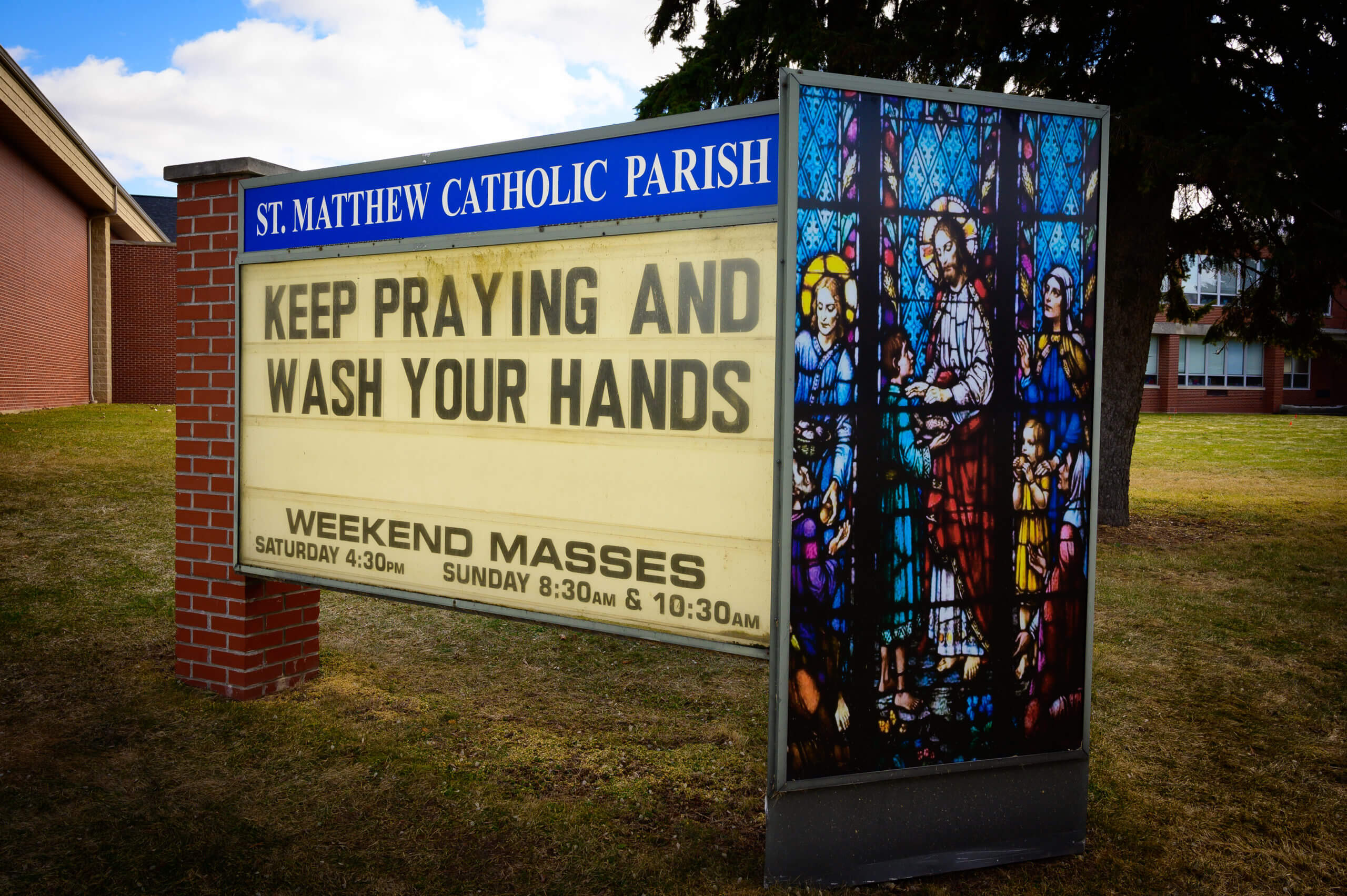
Playing it safe is pro-life
Responding to editors’ requests for a regular sampling of current Catholic commentary, here is a column provided to Catholic News Service titled “Playing it safe is pro-life,” written by Colleen Carroll Campbell, a journalist and author of “The Heart of Perfection: How the Saints Taught Me to Trade My Dream of Perfect for God’s,” published in 2019 by Simon & Schuster.
I’ve been seeing it all week: Catholics who refuse to forego handshakes at the sign of peace at Mass despite diocesan warnings because they think it’s all media hype; Catholics who protest loudly at the new coronavirus-inspired restriction on visitors at my mother’s nursing home because it disrupts a cherished routine; Catholics who balk at limits on air travel or cancellations of classes or conferences because, as I’ve heard too many times to count: “I’m healthy, so why should I fear?”
Here’s why: Because while you probably won’t die from coronavirus illness, designated COVID-19, someone else in your orbit — someone older or sicker or weaker than you — very well might. And because the world is watching how we pro-life Christians respond to this crisis, and whether we walk our talk about defending the elderly and vulnerable even when it costs us something.
I speak as one of the recently converted to coronavirus caution. I was hoping until just a few days ago to proceed with a busy spring speaking schedule that would have had me hopping on and off planes to cities across the U.S. and Canada, until my geriatrician husband and extensive reading on the pandemic set me straight. Now I find myself firmly in the better-safe-than-sorry camp, convinced that my Catholic faith and pro-life convictions demand no less.
The coronavirus pandemic that has already killed some 5,000 people worldwide has only begun to wreak its havoc here in the U.S., where it has killed more than three dozen Americans in less than two weeks. Health officials nationwide expect to see COVID-19 death and infection rates multiply exponentially in the weeks to come, potentially overwhelming our health care system and leading to nightmarish conditions that could mirror those in China and Italy.
It’s a scenario we can’t prevent simply by scrubbing our hands a few seconds longer or even staying home when sick. The virus’ unusually long incubation period and potential for carriers to infect others before they know they have it means those commonsense measures — while necessary — are not nearly enough.
We need social distancing. We need to cancel our trips, change our plans, stay out of crowds. We need to change how we live today so the oldest and weakest among us don’t die tomorrow.
This is tougher for some of us than others. Low-wage workers who live paycheck to paycheck will be hit hardest, which is why public and private sector support for them is crucial.
But for many of us, resistance to the changes required by this pandemic is not about necessity so much as convenience. We don’t want to scrap our plans or lose our deposits or cancel our celebrations and conferences. We don’t want to live differently because we’re not the ones in danger.
That fact only makes it more crucial that, in a culture that routinely devalues the lives of the old and weak, we Christians take the lead in protecting our elders and most vulnerable members. Even a delay of a few months in contracting the virus could give our health care systems a chance to catch up, and our communities a chance to build some immunity. And when we feel the pinch of our sacrifices of time, money and convenience, we can prayerfully offer them up for all those around the world who have lost much more to this pandemic than we have.

